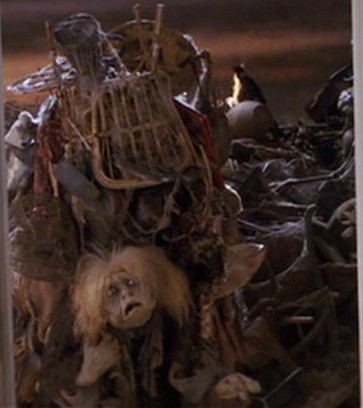Beating Off Depression with Distractions

Comorbid is an icky word. Say it with me. “Ko-’Mor-Bid”. It means people with mental health issues usually have to carry more than one condition on their backs. I lug around ADHD, Major Depressive Disorder, and Adult Tourette’s. It’s a lot of fun, and you should see the muscles on my legs. Atlas would be jealous.
Last Saturday, Tourette’s was the issue that ruled my day. I had so much work to be done, including posting an article on this blog, but instead I was in slow motion. Everything was harder to do than usual—as it usually is when my brain feels as if popcorn was leaping to life underneath it. Tourette’s triggers boredom and frustration, which my ADHD self has a low tolerance for, and I wasn’t accomplishing what I needed to accomplish, so depression was starting to press in.
By the beginning of the evening, I knew my day was doomed unless I did something about it. I had boosted my protein intake to help reduce the ticking, but my depression was still strong. Distraction was in order. In moderation, distraction can be a very effective coping strategy for fighting depression. Here’s what I did.
I posted a creative photo of Utah’s recent snowfall. (Creativity helps offset depression.) It was a small step, but it felt like an enormous wall. Then I added new commentary on an old Facebook memory. (I considered it a warmup exercise. It is also creative, which helps boosts endorphins.) This was another small step forward, but it came easier than the first step. Next, I wrote a critique of Facebook’s recent news filtering initiative by pointing out how ludicrous their friend algorithms are. (Now I was cooking and thoroughly distracted.) That post earned a negative comment from a reader for it’s randomness. Inspired by the rebuttal, I also posted a wacky Star Wars fangirl video by a local mayor taking office. Now that was random. And weird. Wow. What a strange video. Lastly, throwing caution to the wind, I opened a discussion on how Facebook would decide which political side of the government shutdown was fake news.
Then I got to work. The depression was abated. My ticking had faded. None of my friends showed up as planned that evening, so I suddenly had time for more productivity. We can leave discussions of how pathetic I must be to be happy to work on a Saturday night with no romantic prospects for another time.
The one regret I had for the evening was tearing apart on Twitter an article about gender dominance in picture books. The journalist of the article from England engaged me—which proved to be a very informative conversation—but because it takes so much effort to mentally function when ticking, diplomacy often falls by the wayside. I usually try to avoid polemic discussions, but didn’t that evening. I didn’t post anything that was irate or hateful, but I wonder if the journalist was as excited to read my glib insights as I was in typing them.
What I didn’t do that evening was clear out my brand new paper pile monstrosity, or write a book, or finish research for my Pokémon book. I didn’t even watch TV or read a book for entertainment. Social media and freelance work took up my time. If I were to do the evening again, assuming I can have precense of mind when ticking, I would set a timer for each event, and limit my social media to one platform. Facebook would have been enough. I, also, read far too much news, so that distraction needed to be reined in as well. However, I did successfully fight off depression, which would have robbed me of several days of productivity if I had let it take root. That was my focus.
Sometimes our solutions aren’t perfect, which is why I’m sharing this with you. I don’t have a solid grip on my mental health issues. I can’t snap my fingers and make them go away. It is a constant battle, and it consumes so much time. However, by experimenting and analyzing, we can hone in on the solutions that work best for us. Don’t let yourself get discouraged, and take the small victories where you can. Comorbidity can be very difficult to deal with. You need a positive attitude to keep up the fight.
~Dˢ
If you need some ideas on coping strategies, you should read my book on fighting suicidal depression.